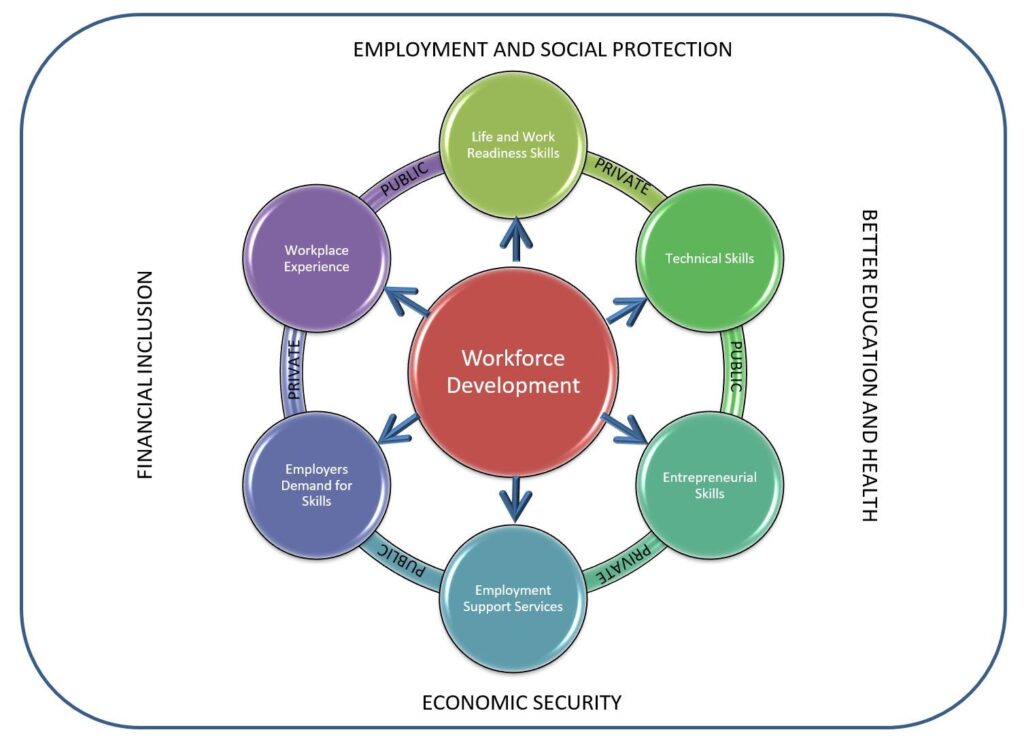Powai Crisis: Urgent Call for Robust Talent Verification
7 min read
The recent Powai hostage crisis has sent shockwaves not just through Mumbai’s entertainment industry, but across the entire professional landscape, shining a harsh spotlight on the critical need for rigorous professional credential verification and recruitment integrity. The horrifying incident, involving 38-year-old Rohit Arya who held 19 people, including 17 children, hostage in an acting studio, revealed a disturbing pattern: Arya had allegedly posed as someone with deep ties to the film industry, yet had “no verified credentials or background,” as emphatically stated by the Indian Film & Television Directors’ Association (IFTDA). This event underscores the escalating dangers of unverified claims in talent acquisition and demands an urgent re-evaluation of current verification protocols, coupled with robust cybersecurity measures, to protect both individuals and organisations.
Background and Context: The Echoes of Powai
The Powai crisis, which culminated in a fatal standoff with police, left a community reeling and raised uncomfortable questions about trust and due diligence in recruitment. Rohit Arya’s ability to operate under false pretenses, allegedly using the allure of the entertainment world to lure victims, highlights a significant vulnerability. While the immediate context is tragic, the underlying issue of individuals misrepresenting their professional identity is a widespread problem that transcends specific industries, impacting virtually every sector seeking to acquire talent. In an increasingly interconnected world, where initial interactions often occur online, the ease with which individuals can fabricate credentials or affiliations poses an unprecedented challenge to employers, recruitment agencies, and aspiring professionals alike.
This incident is not an isolated case but rather a stark reminder of a growing trend. The digital age, while facilitating global talent mobility and unprecedented access to opportunities, has simultaneously created fertile ground for deception. From embellished resumes and fake testimonials to sophisticated identity theft, the integrity of talent acquisition processes is constantly under threat. The IFTDA’s swift clarification – stating unequivocally that Arya was not a member of their association, nor affiliated with any recognised body, and possessed “no professional background, verified credentials, or legitimate standing” – serves as a crucial warning to everyone involved in the hiring ecosystem.
Unmasking Deception: Key Developments and Industry Vulnerabilities
The IFTDA’s response to the Powai crisis was immediate and unequivocal. Their statement condemned the misuse of the film industry’s name and emphasized their role as the “only authorised and the oldest body in India that grants recognition and membership to casting professionals.” This assertion is a direct call for aspiring artists to exercise extreme caution and diligently verify the credentials of those offering opportunities. The association highlighted that “Such impostors not only deceive and defraud people but also subject them to mental, physical, and financial exploitation.” This sentiment resonates far beyond the entertainment industry, serving as a critical message for all sectors battling similar threats.
The Digital Frontier of Fraud and Cybersecurity Threats
The digital transformation of recruitment has introduced new dimensions to credential fraud. Online platforms, social media, and digital portfolios have become primary touchpoints for talent acquisition. While these tools offer efficiency and reach, they also provide sophisticated means for fraudsters to create elaborate false personas. Fake LinkedIn profiles, doctored academic certificates, and fabricated employment histories are becoming increasingly common. The challenge is exacerbated by a lack of standardised global verification mechanisms, particularly pertinent for international talent navigating diverse regulatory environments.
Furthermore, cybersecurity directly impacts recruitment integrity. Data breaches can expose sensitive personal information, which can then be used for identity theft or to create convincing fake profiles. Phishing attacks targeting job seekers or recruiters, designed to steal credentials or implant malware, add another layer of risk. If a recruitment firm’s systems are compromised, the integrity of their candidate database is at risk, potentially leading to the hiring of individuals with questionable backgrounds or, conversely, legitimate candidates being overlooked due to manipulated information. The incident involving Arya’s company, Apsara Media Entertainment Network, having previously partnered with a Maharashtra education department initiative, adds another layer of complexity, raising questions about how such associations are secured and vetted, and if they inadvertently lend legitimacy to questionable operators.
Impact Analysis: Safeguarding Careers and Reputations
The implications of inadequate credential verification are far-reaching, affecting both individuals seeking opportunities and organisations seeking talent. The Powai crisis serves as a brutal reminder of the worst-case scenario, but even less dramatic instances of fraud can have significant consequences.
For Aspiring Professionals and International Students:
International students, often eager for opportunities in a new country, are particularly vulnerable. They may not be fully familiar with local industry bodies, certification processes, or the common scams prevalent in a foreign job market. The promise of quick employment or lucrative roles can be incredibly enticing, leading them to overlook red flags. Falling victim to recruitment fraud can result in:
- Financial Exploitation: Payment for fake auditions, training, or visa processing fees that never materialise.
- Wasted Time and Effort: Pursuing phantom roles, undergoing sham interviews, and investing emotionally in non-existent opportunities.
- Reputational Damage: Unwittingly participating in fraudulent schemes that could jeopardise future legitimate opportunities or even lead to legal complications.
- Visa Complications: Providing falsified documents or engaging with fraudulent entities can have severe immigration consequences, including visa denial or cancellation, and potential deportation.
- Psychological Distress: The emotional toll of betrayal, financial loss, and dashed hopes can be substantial.
For Employers and Recruitment Agencies:
Organisations bear a significant burden when their hiring processes are compromised. The risks include:
- Reputational Damage: Hiring individuals with fraudulent credentials can severely tarnish a company’s image, leading to a loss of public trust and negatively impacting brand perception.
- Financial Losses: Poor hires due to unverified credentials can result in direct financial losses through incompetence, fraud within the organisation, or the costs associated with repeated recruitment and training.
- Security Risks: Unvetted individuals, especially in sensitive roles, can pose significant security threats, including data breaches, theft of intellectual property, or even physical harm, as dramatically illustrated by the Powai incident.
- Legal and Compliance Issues: Negligent hiring claims, regulatory fines, and non-compliance with industry-specific standards can lead to costly legal battles.
- Erosion of Internal Morale: The presence of unverified or fraudulent employees can create an atmosphere of distrust and resentment among legitimate staff.
Fortifying Talent Acquisition: Implementing Robust Verification and Cybersecurity
In response to these growing threats, a multi-pronged approach combining stringent verification protocols and robust cybersecurity measures is imperative. Implementing **talent verification best practices** is no longer a luxury but a fundamental necessity for all stakeholders.
For Individuals and Aspiring Talent:
- Verify, Verify, Verify: Always cross-reference claims. If someone purports to be from an organisation, check the official website, contact their official numbers, or verify through recognised industry bodies like IFTDA.
- Question “Too Good to Be True” Offers: Be highly sceptical of unsolicited offers promising exorbitant salaries, immediate opportunities without a rigorous interview process, or requests for upfront payments.
- Use Official Channels: Apply for jobs through reputable job boards, official company career pages, or well-established recruitment agencies with a proven track record. Avoid engaging solely through social media direct messages or unverified email addresses.
- Protect Personal Information: Be cautious about sharing sensitive personal documents (passport copies, bank details) until a legitimate offer is confirmed and the requesting entity is thoroughly vetted.
- Seek Expert Guidance: For international students, consult with visa and immigration specialists like
who can guide you on legitimate pathways, help verify employers, and ensure your job search aligns with your visa conditions.
For Organisations and Recruitment Ecosystem:
To implement truly effective talent verification best practices, organisations must consider:
- Comprehensive Background Checks: Go beyond basic checks. This includes verifying educational qualifications, previous employment, professional licenses, criminal records, and credit history where relevant and permissible by law.
- Digital Credential Verification: Utilise blockchain-based or secure digital platforms for verifying academic certificates and professional qualifications, reducing the risk of forged documents.
- Leveraging AI and Machine Learning: Employ AI-powered tools to detect inconsistencies in resumes, identify patterns of fraud, and cross-reference information across public databases.
- Multi-Factor Verification: Implement layered verification processes, combining automated checks with human oversight, interviews, and reference checks.
- Partnering with Reputable Verification Agencies: Collaborate with third-party experts specialising in background checks and credential verification, especially for international hires.
- Robust Cybersecurity Protocols: Secure applicant data from collection to storage. Implement strong encryption, access controls, regular security audits, and employee training on phishing and data protection.
- Establishing Clear Communication: Educate candidates on your verification process and official communication channels to prevent them from falling prey to impostors claiming to represent your organisation.
- Continuous Monitoring: For critical roles, consider ongoing checks or periodic re-verification, especially when an employee’s responsibilities evolve.
Looking Ahead: A Collective Responsibility for Integrity
The Powai crisis is a stark reminder that the integrity of talent acquisition is a shared responsibility. It requires vigilance from individuals, robust processes from organisations, and collaborative efforts from industry bodies, governments, and technology providers. Standardisation of verification processes, particularly for international credentials, will be crucial. Furthermore, ongoing public awareness campaigns are vital to educate aspiring professionals, especially those new to a country or industry, about common scams and how to protect themselves.
As the world of work continues to evolve, the methods of deception will also become more sophisticated. Therefore, the commitment to professional credential verification and recruitment integrity must be continuous, adaptable, and deeply embedded in every step of the talent acquisition journey. Only through such comprehensive and proactive measures can we build a secure and trustworthy environment for both talent and employers, preventing future tragedies and fostering genuine professional opportunities.
Reach out to us for personalized consultation based on your specific requirements.



